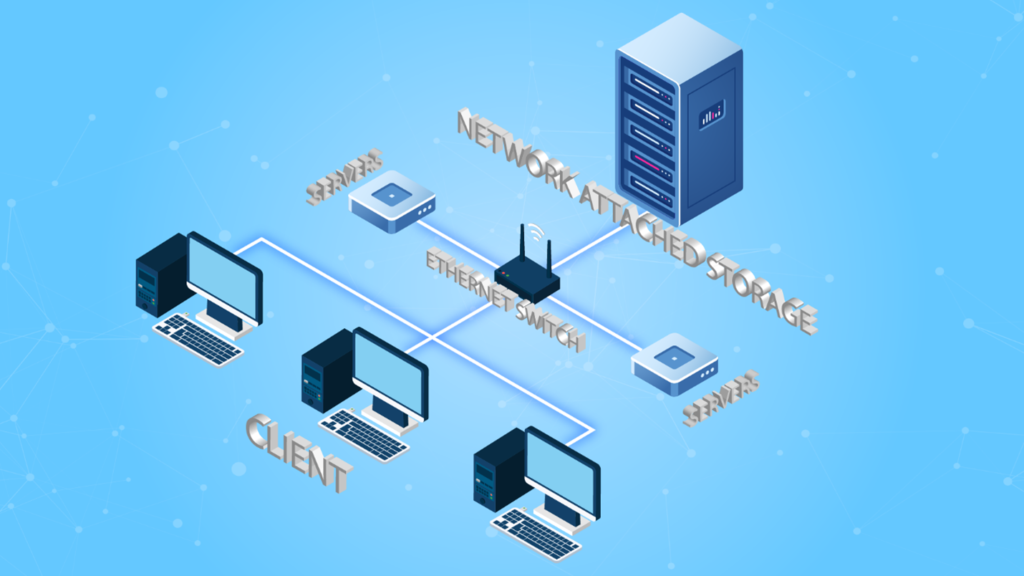Why NAS
Data is very critical asset for company. Without data, companies may not provide their customers the expected level of services. Due to low volume of storage, maintaining historical data backup is challenge and mostly got erased or lost. This will result into poor customer service, lack of efficiency, impact on sales and potential loss of income.
NAS devices are rapidly becoming popular with enterprise and small businesses in many industries as an effective, scalable, low-cost storage solution.
What is NAS
Network-attached storage (NAS) is a file-level computer data storage server connected to a computer network providing data access to a heterogeneous group of clients. NAS is very flexible and scale out solution for storage, that means you can increase size as you need additional storage. NAS is like having private cloud storage in office.
NAS devices typically do not have a keyboard or display and are configured and managed with a browser-based utility. Each NAS resides on the LAN as an independent network node, defined by its own unique Internet Protocol (IP) address. NAS connects to a wireless router, making it easy for distributed workers to access files from any desktop or mobile device with a network connection.

Some NAS products are designed for use in large enterprises. Others are for home offices or small businesses. Devices usually contain at least two drive bays, although single-bay systems are available for noncritical data.
Benefits of NAS
- Simple to operate, a dedicated IT professional is often not required
- Lower cost
- Easy data backup, so it’s always accessible when you need it
- Good at centralizing data storage in a safe, reliable way
- Easy for employees to collaborate as data is continually accessible.
- As it is like a private cloud, data may be accessed remotely using a network connection, meaning employees can work anywhere, anytime.
NAS Use Cases
At home, people use a NAS system to store and serve multimedia files and to automate backups. Home users rely on NAS to do the following:
- Can used for storing smart TV recording/updates.
- Centralize repository for security systems and security updates.
- As NAS can be used like personal cloud server, it can be used to create a media streaming service.

In the enterprise, NAS is used:
- as a backup target, using a NAS array, for archiving and disaster recovery.
- for hosting messaging applications.
- for hosting server-based, open source applications such as customer relationship management, human resource management, and enterprise resource planning applications; and
- As employees can access NAS from anywhere, they can use it for serving email, multimedia files, databases and print jobs.
Conclusion
NAS are wonderful machines that are perfect for anyone that wants to store large amounts of
data, but wants to be able to access it from anywhere. Small- and medium-sized organizations,
as well as people that are often on the move while working, will love the flexibility and speed NAS offers.
-Amar Chavan
